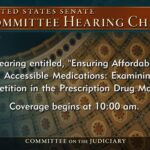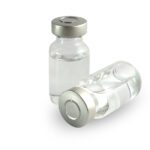Q&A: Maura Keefe and Alex Brill Discuss Understanding Drug Rebates and Their Role in Promoting Competition
Alex Brill, a senior fellow at the American Enterprise Institute and CEO of Matrix Global Advisors, recently sat down with CAPD spokesperson Maura Keefe to discuss his latest report for CAPD, Understanding Drug Rebates and Their Role in Promoting Competition, and the facts behind drug pricing and how pharmacy benefit managers (PBMs) negotiate rebates.
Alex’s report refutes claims that rebates are to blame for increasing list prices for brand drugs—evidence that is further backed up by the fact that only 1 in 10 drugs has a rebate.
Here are some highlights from the conversation:
Maura: Let’s start by discussing the main findings of your report – How have the prices of prescription drugs changed over the last four years for drugs with rebates, and without them?
Alex: Thanks, Maura. My recent research looked at average price changes for rebated and non-rebated drugs from 2018 to 2021. I found that price changes were roughly the same for the two groups of drugs over these four years. Despite some claims to the contrary, there is a lack of evidence that drug rebates are the culprit behind high drug prices. If policymakers want to lower drug prices, the best way is by facilitating and encouraging robust competition among drug manufacturers.
Maura: What got you interested in exploring rebates in drug pricing?
Alex: I’ve long been interested in drug competition and the function of competition in bringing savings to consumers and the healthcare system. Rebates are one tool that can be used to bring down the net price of a brand drug. In addition to the role of generic entry in reducing drug costs, rebates can facilitate savings by lowering the effective price of brand drugs. I got interested in this because it is often less well understood but still very important for the US healthcare market.
Read more of the interview here.
Other posts about this study can be found here, here and here.












